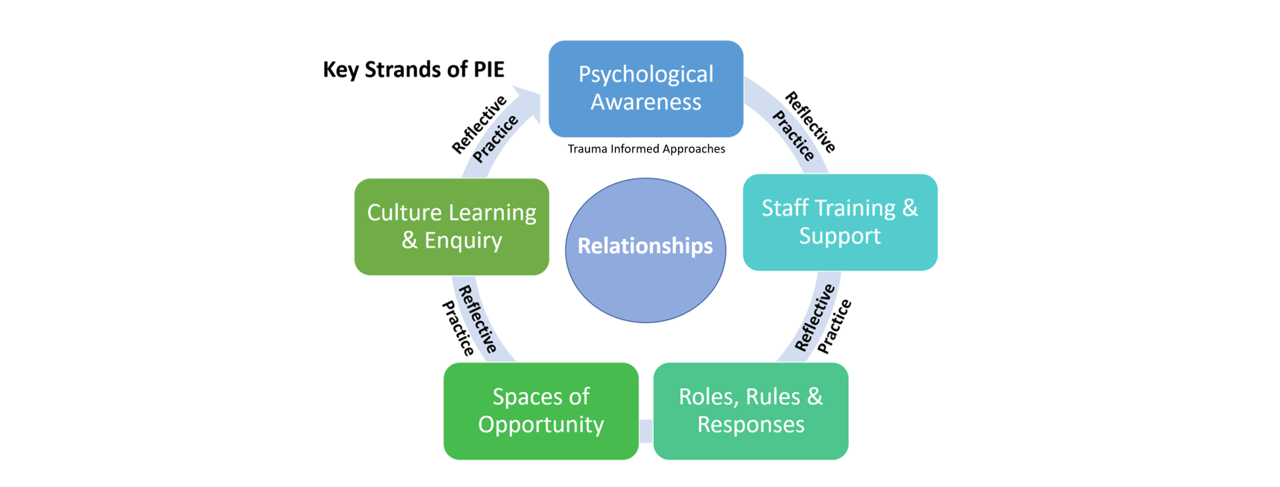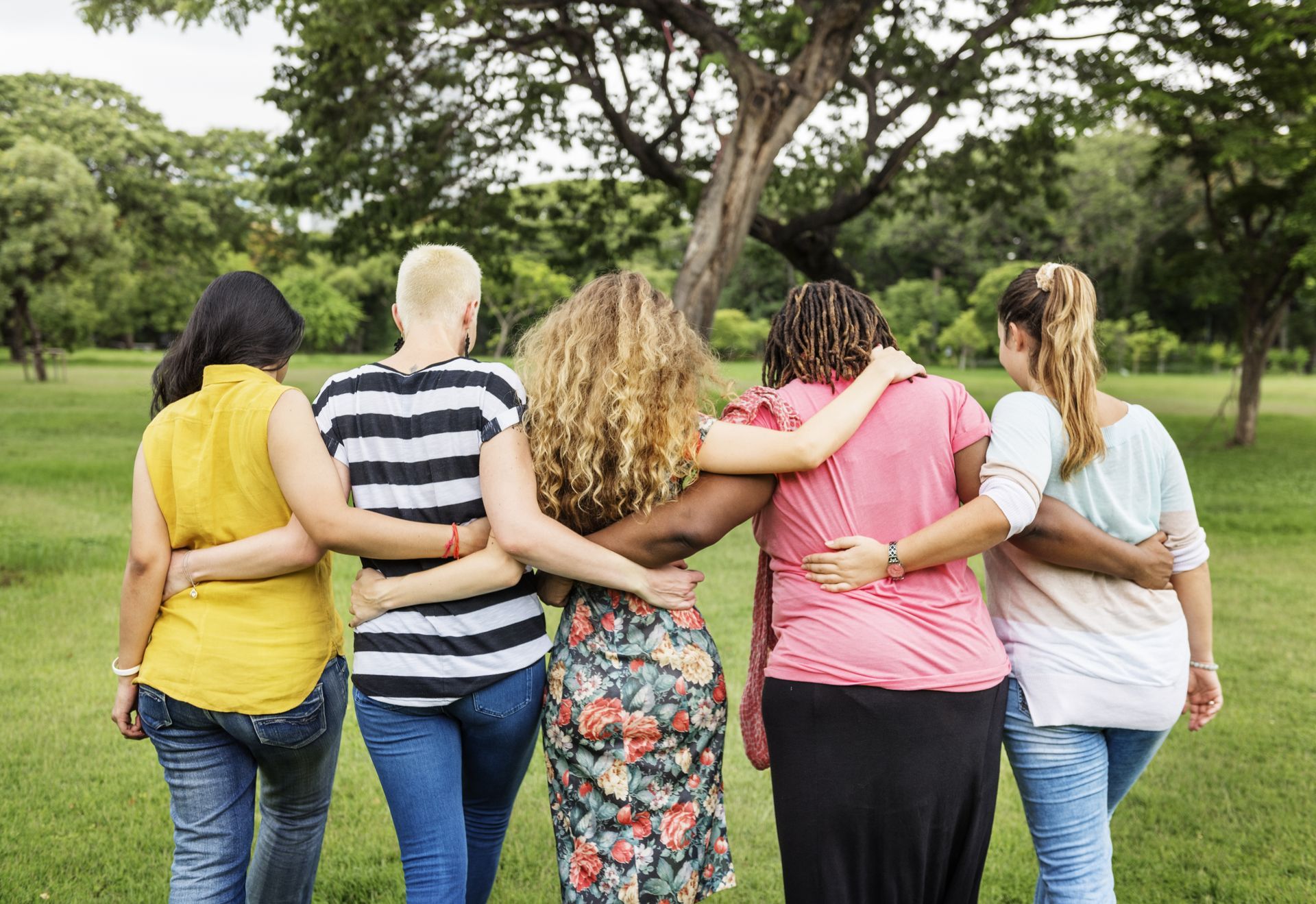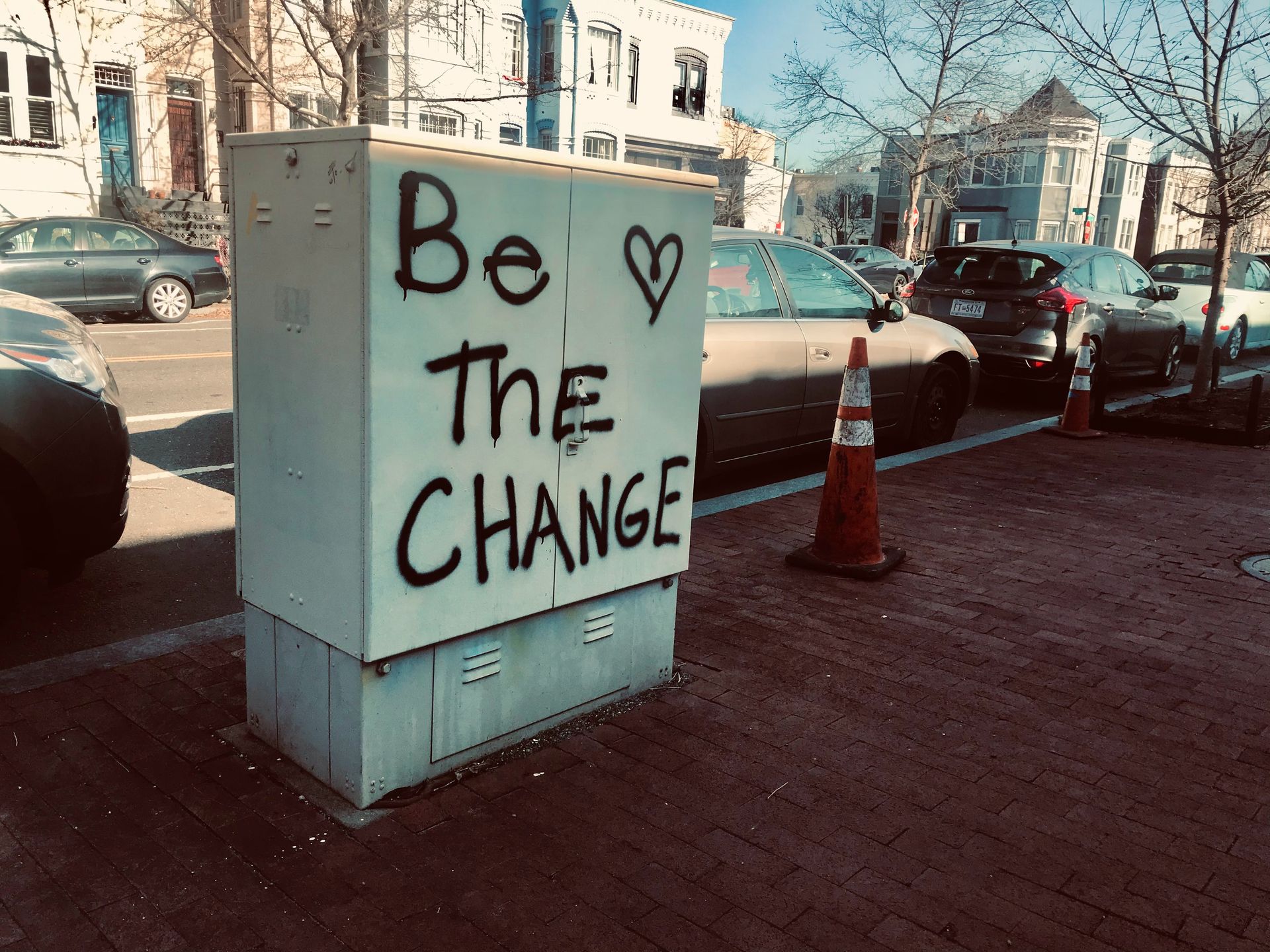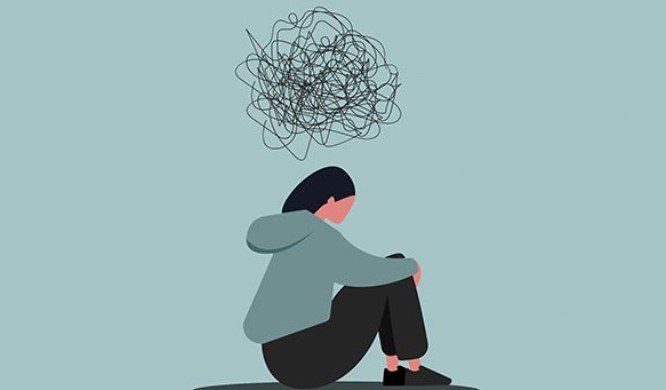Westminster's drive to become the UK's leading PIE borough

What is PIE and why is it important?
A Psychologically Informed Environment (PIE) approach puts the individual at its centre, developing and delivering services that consider the emotional and psychological needs of the people accessing, and working in, those services. It plays a particularly vital role in the delivery of services for people experiencing multiple disadvantage, including individuals who are experiencing homelessness, have mental health difficulties, and co-occurring conditions (such as substance use).
Organisations are encouraged to consider the Five Key Strands when developing a PIE -
- Fostering Psychological Awareness and Psychological Framework – including Attachment-informed, Trauma Informed, Solution Focused, and Compassion Focused Approaches
- Creating Spaces of Opportunity and Environments of Engagement
- Building Empowering Relationships and considering the Rules, Roles, Responsibilities that help structure safe and supportive services
- Staff Support and Training – enhancing confidence, competence, wellbeing
- Developing a Culture of Enquiry and Evaluation via things like monitoring, reflective practice and self-assessment, helping us track how effectively practice is embedded, individually and across organisations.
All these factors have been seen to hang together to enable us to develop safe and empowering services that are driven by empathy, compassion, strengths-based approaches, and work to address underlying trauma and avoid inadvertent re-traumatisation.

aneemo & Westminster: Leading the way
WCC have long been champions of the PIE approach and aim for all their rough sleeper, supporting housing, and homelessness services to be PIE and trauma informed. They have been fostering this approach through their commissioning, support, and face to face training and now also in becoming the only London borough to join the ambitious system-change programme ‘Changing Futures’ funded by the National Lottery and Department of Levelling Up Housing and Communities (DLUCH).
As one of the five core strands of PIE, accessible and engaging Staff Training is a vital part of developing a PIE approach. At aneemo we are passionate about supporting organisations to be PIE and Trauma-informed by providing superior training for all those working with complex needs and multiply disadvantaged groups. Backed by the Mayor of London, Lambeth, and Westminster City Councils, aneemo is working in more than 30 countries, supporting hundreds of homeless organisations, Health and Social Care Providers, NHS, Local Authorities, government bodies and NGO’s.
At aneemo we are excited to work with the council and be part of Westminster’s PIE journey. We are supporting this in a partnership between WCC, aneemo and Groundswell to deliver a multi-level pack of PIE staff support and training funded for three years by the DLUCH Rough Sleeping Innovation grant.
Westminster: PIE Training Offerings
An innovative and comprehensive programme of training is being made available to Westminster staff and service providers. Currently there are two training offerings to enrol onto if you are working in Westminster:
1. The PIE Training Programme
This programme is aimed at workers from a variety of sectors across commissioned services working with multiply disadvantaged groups such as accommodation, outreach, substance misuse, domestic abuse, mental health services.
The multi-level training programme offers a unique professional development opportunity for staff, including a bespoke Westminster PIE course, face to face training sessions and wider access to an online library of video-based, CPD accredited online training taught by leading national experts.
This structured programme is made up of three tiers. The first, Level 1: PIE Foundations, should be completed before staff progress on to access Level 2 & 3 training to promote a consistent foundation of PIE informed practice across the borough. This includes a bespoke Westminster PIE and Trauma informed care online aneemo course, developed specifically for the borough of Westminster. Level 2: PIE Essentials and Level 3: PIE Organisational can be accessed next, providing further learning to develop and embed PIE practice (incl. face to face training, access to the full aneemo course catalogue, and self-assessment tools).
The PIE Training Programme will be launched in February 2023. Service leads should register their interest by contacting anna.midgley@groundswell.org.uk
2. ‘Changing Futures’ Training
The Changing Future Programme will be delivered by a wide range of cross-sector partners coming together to tackle multiple disadvantage and inequalities across Westminster. This programme is supported by an excellent range of training to enable all staff and partners in the borough to gain awareness and understanding of a core range of topics relating to Multiple Disadvantage. People facing multiple disadvantage experience a combination of issues including, but not limited to, homelessness, substance misuse, contact with the criminal justice system, violence against women and girls (VAWG) and mental ill health.
The Training Programme will comprise of a mix of existing training offered through Groundswell’s Homeless Health Coordination Project (HHCP) and new training co-designed with the third sector & funded through the Changing Futures programme. These training courses will be offered both live (via face to face or live webinars) and also by access to specific CPD accredited aneemo courses selected for the Changing Futures partners:
- Compassion Focussed Therapy Approaches - for more information visit the course page here
- Trauma Informed Approaches - for more information visit the course page here
If you are working in Westminster and interested to find out more –
To register your interest in the PIE Programme please contact anna.midgley@groundswell.org.uk. You can also get in touch with aneemo (contact@aneemo.com) for more details about any of the training on offer, or to enrol yourself or your staff today!
If you are not currently working in Westminster but still interested in accessing training to become trauma informed and psychologically informed please feel free to reach out to
contact@aneemo.com and we would be happy to chat more.











